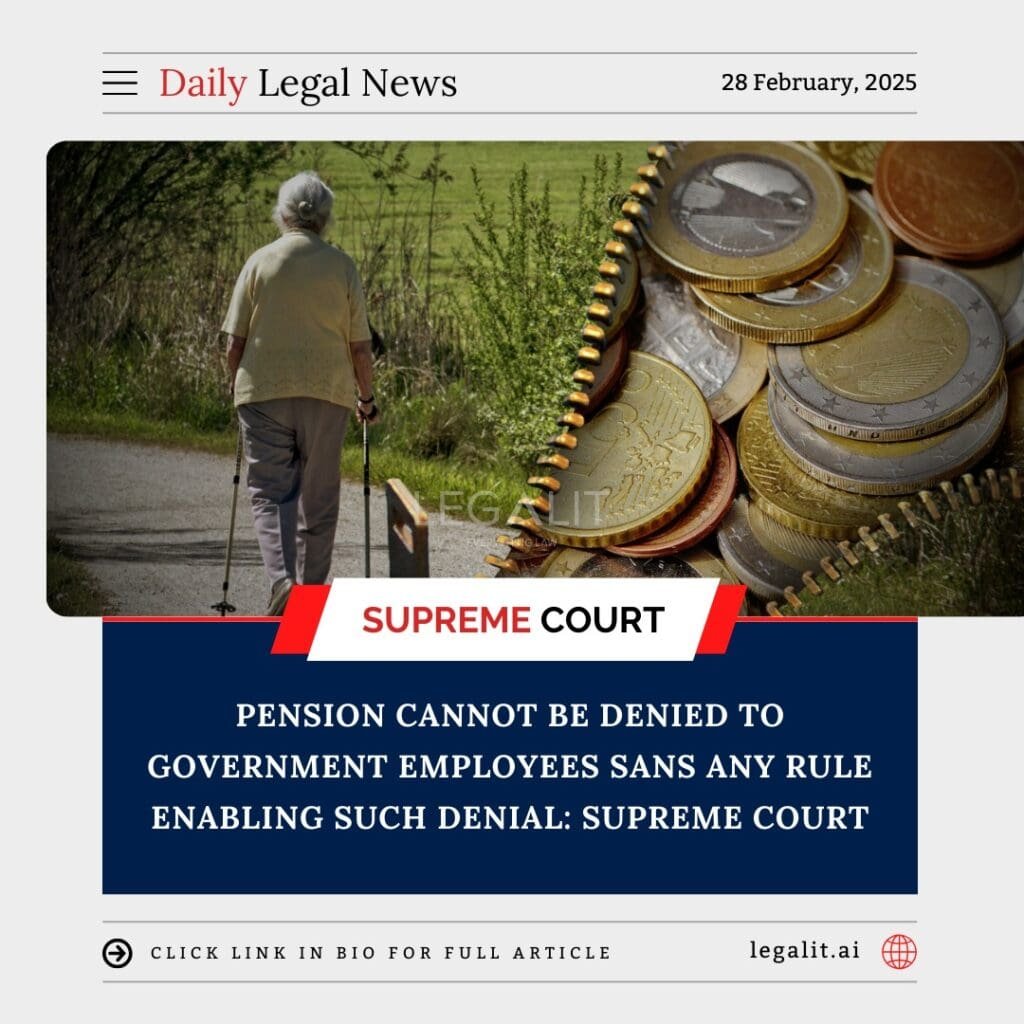
Background
The Supreme Court has ruled that government employees cannot be denied their rightful pension unless there is a specific legal provision allowing such denial. The judgment came in response to a case where retired employees were denied pension benefits despite having served in government service for the required period.
The petitioners, former government employees, had approached the court after their pension was withheld without any explicit rule justifying such action. They argued that pension is not a mere privilege but a vested right earned through years of service.
Court’s Rationale
The Supreme Court, while ruling in favor of the petitioners, emphasized the following key points:
- Pension is a Right, Not a Charity
- The court reaffirmed that pension is a fundamental right of government employees upon retirement, not a discretionary benefit.
- The right to pension is protected under Article 300A of the Constitution, which ensures that no person can be deprived of their property (including pension) without the authority of law.
- Denial Without Legal Backing is Arbitrary
- The bench held that unless there is a specific rule or statutory provision that permits withholding pension, the government cannot deny it.
- Administrative decisions that adversely affect employees must be backed by law and cannot be taken arbitrarily.
- Precedents Supporting Pension as a Right
- The Supreme Court referred to previous judgments where it had ruled that pension is not a bounty but a deferred salary earned through service.
- The court also cited rulings that establish pension as a social security measure, ensuring financial stability for retired employees.
- Government Obligations Towards Retired Employees
- The court directed that pensions must be disbursed on time, and any delay or denial without legal justification would amount to a violation of constitutional rights.
- It further stated that pension cannot be withheld as a punitive measure unless expressly provided for under service rules.
Existing Measures
- The Pension Rules under the Central Civil Services (Pension) Rules, 1972, provide guidelines on pension eligibility and conditions under which it may be withheld.
- The Supreme Court has consistently ruled that pension benefits cannot be arbitrarily denied without due process.
- Government employees have the right to approach administrative tribunals and courts if their pension is wrongfully withheld.
Conclusion
The Supreme Court’s ruling reinforces the principle that pension is a legally protected right and cannot be denied without statutory authority. This judgment serves as a reminder to government authorities that any decision affecting the livelihood of retired employees must be backed by law and due process. Employees facing pension denial without legal justification can now rely on this verdict to seek redressal.